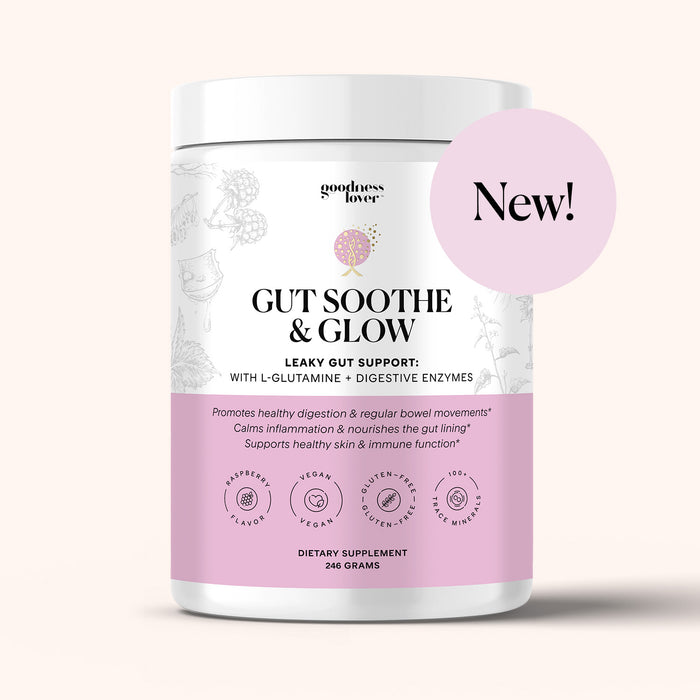Welcome back to our deep dive into the world of natural remedies for acid reflux! If you've been following along, you'll remember that in Part 1, we introduced you to the fiery foe known as acid reflux, explored its causes, symptoms, and conventional treatments. We also began our journey into the realm of lifestyle changes that can help keep this pesky intruder at bay.
Now, it's time to delve deeper. In Part 2 of 'Treating Acid Reflux Naturally', we'll continue our exploration of dietary modifications and introduce you to a host of natural remedies that can help you manage acid reflux without reaching for the medicine cabinet. From herbal wonders to home remedies, we'll guide you through a variety of natural strategies that can help you reclaim your life from the clutches of acid reflux.
So, buckle up and get ready to douse the flames of acid reflux, naturally and effectively, as we explore the most practical and effective strategies to keep this fiery foe at the door.
Table of Contents:
1. Avoid foods that promote reflux
When it comes to managing acid reflux naturally, your diet plays a crucial role. Certain foods are known to trigger acid reflux by relaxing the lower esophageal sphincter, increasing stomach acid, or slowing digestion. These include:
- high-fat foods
- spicy foods
- acidic foods like tomatoes and citrus fruits
- chocolate
- mint
- garlic and onions
- dairy
- gluten
- caffeinated or carbonated drinks.
High-fat foods, in particular, can lead to increased pressure in your stomach, promoting reflux of stomach contents into the esophagus. It's also advisable to avoid large meals, especially in the evening, as they can put pressure on the esophageal sphincter.
2. Improve eating habits
Picture this: every time you sit down to eat, you're not just feeding your body, you're also kickstarting a complex digestive process. And it all begins with a simple act - chewing. Chewing is like the opening act of a concert, setting the stage for the main event. It not only physically breaks down your food but also sends signals to your brain, which in turn cues your stomach and pancreas to start producing digestive enzymes. So, take your time and aim to chew each mouthful about twenty times or until it's as smooth as a puree.
Now, let's talk about drinking during meals. Imagine pouring water into a bowl of soup - it dilutes the flavors, right? The same thing happens with your digestive secretions when you drink during meals. They become less effective, making digestion harder. So, try to hold off on the beverages until about an hour after your meal.
3. Heal the gastric lining and reduce inflammation
First, you need to establish whether your gastric lining has been damaged. To do this, take a bit of apple cider vinegar in some water and test whether you feel burning from taking some acid-increasing substance. If you do, you want to make sure the gastric lining is healed before you add more acid back into the stomach. Compounds to help heal the gastric lining and reduce inflammation include bismuth, mastic gum, L-glutamine, licorice root, turmeric, marshmallow root, aloe and slippery elm. But don't worry, we'll dive deeper into each of these healing agents in the sections below. So, stay tuned!
4. Support stomach acid production
Once you heal the gastric lining, you want to support healthy stomach acid production. There are many natural remedies that can help restore healthy levels of stomach acid, including:
- Apple Cider Vinegar
Taking 1-2 tsp of apple cider vinegar (ACV) in water about 15 minutes before meals may help to stimulate your digestive juices and neutralise stomach acid. ACV also helps to stimulate pancreatic enzyme function and alkalise the body. More studies need to be done on the use of apple cider vinegar in reflux.
- Supplemental HCL
Betaine hydrochloride supplements help support healthy gut function and digestion and restore normal gastric acidity. They aid in protein digestion, activate the protein-digesting enzyme pepsin, fight off the undesirable overgrowth of bacteria in the stomach and small intestine, and encourage the flow of bile and pancreatic enzymes.
Timing is everything when it comes to taking HCL. It's best to take it during or right after your meal. Think of it as the dessert to your main course. Taking it before a meal can trigger a false alarm of heartburn and may even switch off stomach acid production for that meal. It’s also best to avoid taking HCL if you are using any NSAIDs such as ibuprofen, Tylenol, or aspirin.
- Digestive enzymes
Natural digestive enzymes, such as lipase, amylase and protease, aid in breaking down fats, proteins, and carbohydrates. Enzyme supplements can be taken to help improve digestion. Some digestive supplements are intended to be taken with a meal, while others should be taken shortly before eating.
- Consume bitters
Bitters are a great addition to help manage reflux.
Imagine your gut as a bustling city, and bitter-tasting foods and herbs as the city's diligent workers. They work tirelessly to keep the city running smoothly by enhancing motility and stimulating the production of digestive enzymes. Not only that, but these bitter foods are also packed with prebiotic fibers, acting as the city's gardeners, nourishing and balancing the microbiome, the city's lush parks. Some of these foods include dandelion greens, dandelion root tea, kale, arugula, radishes, bitter melon, cabbage, endive, and cilantro.
Now, let's talk about the city's special task force - bitter herbs like gentian, wormwood, and globe artichoke. These herbs stimulate the release of saliva, promoting gastric secretion, and facilitating digestion. They likely increase the tone of the lower esophageal sphincter (LES), the city's gatekeeper, helping to keep stomach contents from flowing up, and boost mucous production as well.
5. Take natural remedies
Nature has provided many natural remedies to help kick reflux in the butt. In fact, many of these remedies work just as effectively as conventional medications to relieve symptoms of reflux but without the nasty side effects.
-
Licorice root
Licorice root is a popular herbal remedy in both Chinese and Ayurvedic medicine. It possesses demulcent properties, which means it can soothe inflamed tissues and mucous membranes within the digestive system.
Studies have suggested that licorice root may be an effective natural remedy for stomach acid reflux. It works by forming a protective coating on the esophagus, which can help guard against the irritation caused by stomach acid.
However, it's important to note that long-term intake of licorice root can lead to potential side effects due to a compound called glycyrrhizin. To avoid this, opt for a deglycyrrhizinated (DGL) version of licorice root, which has the glycyrrhizin removed.
-
Fennel
Fennel has also been used for centuries for its anti-spasmodic properties. Research has shown that fennel can help regulate contractions of the small intestine, improving gut motility. It is effective for reflux as it relaxes the sphincter, decreases spasms of the gastrointestinal tract, and stimulates the production of gastric secretions.
-
Chamomile
Chamomile has been a trusted ally for centuries, battling everything from upset stomachs and flatulence to ulcers and gastrointestinal irritation. Its superpowers lie in its potent anti-inflammatory and antispasmodic properties, which work to relax the smooth muscles lining your stomach and intestines. But chamomile doesn't stop there. It's also a master of relaxation, helping to alleviate stress, a common trigger for acid reflux.
Chamomile tea is the most popular way to enjoy the plant’s therapeutic effects. You can find chamomile tea in nearly any grocery store, but look for organic, pure whole flowers to get the most benefits. Chamomile is easily available and non-expensive and is also well tolerated and safe to use with children.
-
D-limonene
D-limonene is another great nutrient as it coats the esophagus, offering protection from caustic regurgitation while promoting faster movement of food through the stomach. It may also provide a barrier in the stomach and esophagus against bacterial infections such as H. pylori. 
-
Marshmallow
Marshmallow root is renowned for its soothing effects on inflamed tissues. When it meets water, it transforms into a thick, gel-like substance that coats your esophagus like a protective shield, calming inflammation in your digestive tract and taming excess stomach acidity. While the scientific world is still exploring the full extent of marshmallow root's powers against heartburn, early signs point to it being a promising natural ally in the battle against acid reflux.
-
Plantain herb
Plantain, not to be confused with the banana-like fruit, is a common medicinal herb used for centuries in Europe and North America. Its demulcent properties reduce inflammation, aiding the recovery of esophageal damage caused by acid reflux. Unlike its herbal cousin, marshmallow, Plantago spp does not become thick or slimy when mixed with water – making it an ideal long-term remedy against discomfort from gastric issues.
You can take plantain as a tea for daily consumption, or you can also pick some fresh leaves (make sure they’re pesticide-free) and eat them fresh or juice them. However, while plantain shows promise, more research is needed to fully understand its role in managing acid reflux.
-
Aloe juice
For centuries, the aloe vera plant has been hailed for its medicinal benefits. Recent studies suggest that sipping on aloe juice may help dial down inflammation and lower stomach acidity associated with heartburn.
The best part? This natural elixir comes without the baggage of side effects, making it a safe and soothing ally for those constantly wrestling with chronic indigestion. Start with 1-2 tablespoons of aloe juice a day. You can work up to taking 2 oz. twice daily if needed. Aloe juice is best taken about 20-30 minutes before a meal.
-
Baking soda
Baking soda, or sodium bicarbonate, is an economical and effective remedy that neutralizes stomach acidity, providing temporary relief in a similar way to over-the-counter antacids. Simply stir ½ teaspoon into 1 cup of water and sip slowly for a quick relief of symptoms.
Before incorporating baking soda into your routine, it's essential to consult your health practitioner. While it offers temporary relief, it can potentially interfere with the absorption of certain medications. Plus, it's important to note that long-term use is not recommended. Baking soda should only be used during acute periods of reflux that last less than two weeks, as using it on an ongoing basis can cause your stomach to overproduce acid long-term. It’s best left as an occasional aid, and try other plant remedies when possible.
-
Zinc carnosine
Though zinc carnosine likely won’t cure GERD, studies show that it could play a vital role in a holistic treatment approach. By nurturing a healthy protective layer in your gut and repairing damage to the stomach lining, zinc carnosine might just be the missing piece to help improve GERD. Plus, it can also safeguard you against pesky infections like H. pylori which often trigger acid reflux.
-
Probiotics
Probiotic therapy is another weapon that shows promise in battling the fiery foe.
Probiotics, often referred to as "good bacteria," have been gaining attention for their potential benefits in managing various digestive disorders, including acid reflux. These beneficial microorganisms can help balance the gut microbiota, enhance digestion, and reduce inflammation, which can all contribute to improved acid reflux symptoms. Studies show that probiotics may also help eradicate H. pylori.
But that's not all - probiotics can also be a game-changer when used alongside medication. A study found that children with gastroesophageal reflux disease experienced remarkable results when treated with Lactobacillus reuteri DSM 17938 alongside a proton pump inhibitor. In just 12 weeks, the probiotics group had a significantly lower occurrence of small intestinal bacterial overgrowth compared to the placebo group.
Final Thoughts
And there you have it - a natural arsenal to combat the fiery foe known as acid reflux. From dietary changes and regular exercise to the power of probiotics and the soothing touch of aloe vera, there are numerous natural strategies to help you reclaim your life from the clutches of acid reflux.
It's important to remember that while conventional treatments for acid reflux can provide relief, they often come with a host of side effects and may not be the best solution for long-term management. This makes finding alternative, natural solutions all the more crucial.
Remember, managing this condition isn't just about symptom control; it's about lifestyle control. It's about making choices that support your overall health and well-being. So, next time the fiery foe strikes, why not reach for a natural remedy or try a lifestyle tweak instead of heading straight for the medicine cabinet?
Recipe Spotlight: Licorice-Infused Ginger & Carrot Soup
This simple recipe combines the comforting flavors of ginger and carrot with a hint of licorice. Together, these ingredients can help soothe your stomach, especially if you suffer from acid reflux. The ginger helps with inflammation, while licorice is known to ease digestive problems. Enjoy this soup as a delicious meal that's good for you too!

















What Do You Think? Comment Below: